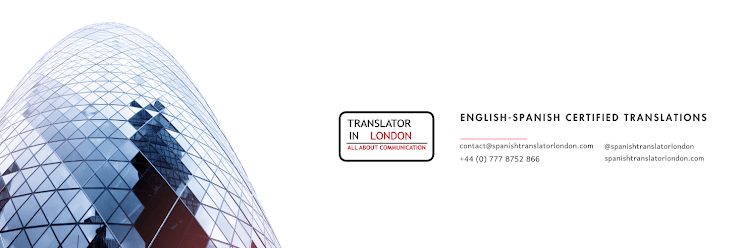The Language Show 2014: Beyond expectations
Last weekend I visited the Language Show
at Olympia Exhibition
Centre. As an English-Spanish Translator and Language Teacher I was a regular
attendee of this event that takes place every year in London, UK. However,
three years ago I felt that the Language Show was mainly focusing on Language
courses, resources for those learning languages and educational trips to other
countries where new languages could be studied through cultural immersion
programmes, instead of offering training, networking or career development
opportunities for translators and interpreters.
That opinion completed changed this year when I enjoyed an
event full of seminars, resources and networking opportunities for professional
translators and interpreters!
On Saturday 18th October I arrived to the Language Show at 10.30 am to join the 'Translation and Interpreters Leaders
Panel Session' – an interesting and informative talk from representatives
of some translation/interpreting companies about what makes them choose one
candidate over another, what subject fields are in demand in the translation
industry and how to stand out in this competitive profession.
Networking started straight after that
session, when I met a colleague that also graduated at the School of Languages
of the University of Cordoba (where I did my degrees) and we shared experiences
and information about our profession as teachers and translators as well as about the challenges and opportunities of our lives in London.
 Just before lunch, I decided to attend
the seminar presented by a European Commission Interpreter and a Professor on
Interpreting about different types of interpreting, with examples of and a
focus on conference and public service interpreting.
Just before lunch, I decided to attend
the seminar presented by a European Commission Interpreter and a Professor on
Interpreting about different types of interpreting, with examples of and a
focus on conference and public service interpreting.
After that I felt privileged about being
present at the seminar lead by Helen Campbell - Director at the National
Network for Interpreting, Routes into Languages - on Conference
Interpreting: What future? This seminar as well as the previous one called ‘So
you think what an interpreter is?’ emphasised the importance of the interpreter’s
mother tongue to a very high standard as well as the responsibility of
interpreters for transferring ideas, more than words… ‘allowing for successful
communication by being able to ‘sense’ what the speaker of one language is
trying to say and structuring that message in a way that is succinct and
accurate’.
Once that session finished, I took some
time to visit some of the stalls that caught my attention. I could not miss the
stall ‘Translate for Europe’ by the European Commission, where I had the chance
of asking about opportunities for freelance translators and interpreters interested
in working for the EC, as well as gathering a number of resources about the main
characteristics and the languages of the countries that are part of the
European Union. I also visited the UKTI stand and talked to just the person I
wanted to meet, the Language and Culture Adviser at UKTI. After listening to
different languages, accents and people, I saw the stand of ‘LA TUNDRA’ a magazine
written in Spanish with interesting articles on culture, art and interviews to Hispanic
personalities, and I felt at home when I was warmly welcomed by its fabulous
team with whom I shared not only a language, but also a feeling for our beloved
Argentina. What’s more, I even received a copy of the printed magazine, which I’m
still reading with interest!
 Last but not least, I attended a panel
session jointly organised by the European Commission's Directorate-General for
Translation, the Chartered Institute of Linguists and the Institute of
Translation and Interpreting with a focus on the results of the survey on
translator training launched following Part 1 held in July, examining whether
translators are being trained to meet the challenges facing the profession. We
were given an extended document with information about the findings of the EC,
CIOL and ITI on how best to future-proof the profession and to equip the next
generation of translators.
Last but not least, I attended a panel
session jointly organised by the European Commission's Directorate-General for
Translation, the Chartered Institute of Linguists and the Institute of
Translation and Interpreting with a focus on the results of the survey on
translator training launched following Part 1 held in July, examining whether
translators are being trained to meet the challenges facing the profession. We
were given an extended document with information about the findings of the EC,
CIOL and ITI on how best to future-proof the profession and to equip the next
generation of translators.
All in all, my love for languages and
translation was more intense than ever after being at the Language Show. The
organisation was impeccable with detailed information about the exhibitors and the
programme for each day on their website. I found all seminars very informative
and all speakers were role models within the Translation/Interpreting
profession. I have already saved the date for October 2015, since after such a
great experience, I could not be missing the Language Show next year!


Comments
Post a Comment